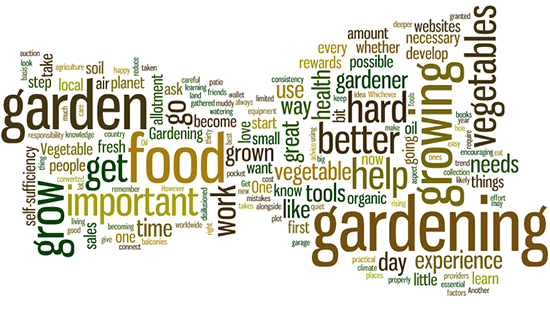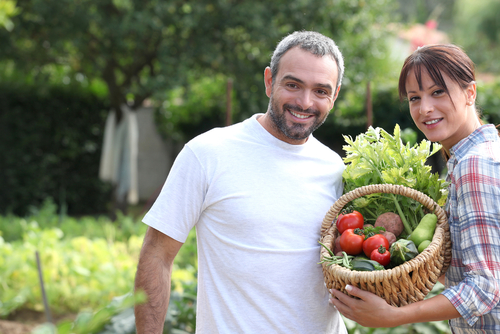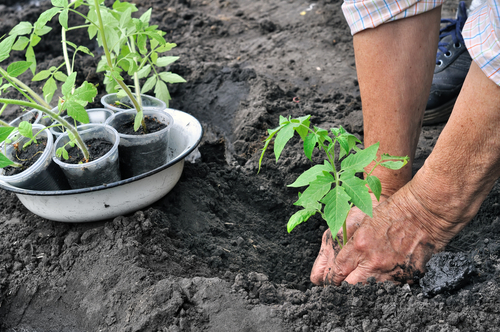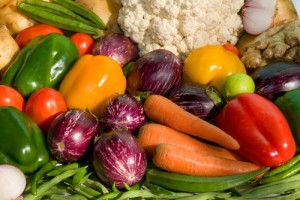This is a guest post from Greenshutters Nurseries & Garden Centre near Taunton in Somerset. They have been growing trees and evergreen hedges on the nursery, including leylandii, laurel & evergreen shrubs since 1980 and are well worth a visit.
Many people dream of self-sufficiency. There are few things more satisfying than growing your own food and living off the land. Modern society has moved us increasingly towards being consumers not providers. However, it is still possible to be self sufficient in some if not all of your food. Vegetable growing is a great first step to take.
Why people grow their own food
There are factors at play that are encouraging more and more people to grow their own food. The world’s agriculture is not as efficient as it once was. Agriculture requires oil for distribution. Oil is a limited resource that can no longer be taken for granted. Increasing population is only making matters worse. In short, food prices are rising worldwide and this trend is likely to continue. Supporting local farming initiatives and home growing helps to reduce the amount of oil used to transport food across the country. There is no better time to learn about self-sufficiency than right now.
What to grow?
The first step in becoming a self-sufficient gardener is deciding what vegetables you would like to grow. There are a huge variety of vegetables that can be grown but what you grow will depend on where you are (climate & soil type) and what you like to eat. It is important that your new garden is practical. Think about which vegetables you use the most and concentrate on these unless they are hard to grow ones that you would be better off buying in. Seasonal growing is important to remember too. Plan for food throughout the year and you won’t end up with gaps in your harvesting.
Where to grow is important
Choosing where to grow your vegetables is important. Do you go for an allotment or community plot? If you have a garden yourself then the chances are that you will want to use this. A patio can be converted into a growing area with rows of containers and even balconies can produce a surprising amount of food! Whichever one you go for it is important that you start small and learn gradually as vegetable growing can be hard work if you take on too much. It is all too easy to become overwhelmed if your not careful and get disillusioned with the whole thing. You can always improve and extend your garden once you have gathered the knowledge and experience necessary to do so.
Tools are essential
Tools are essential for gardening but don’t worry if you’re thinking that its going to cost a fortune. Car boot sales, garage sales, auction websites are all perfect places to gather together a good collection of second hand tools to get you started. There are a few tools that every gardener needs – a spade, a pair of secateurs, gardening gloves, a trowel, a hoe, a garden fork, a watering can & a pocket knife are the basics. All tools and equipment needs looking after though and if done so properly will last for many years and in time will become like old friends.
Get to know your neighbours
Gardening is a great way to get to know your neighbours whether you are working an allotment or your own garden. Don’t hesitate to ask for advice on how to tackle certain problems. They know the local soil, weather and what grows best better than anyone and will be happy to help you avoid the small mistakes that every gardener makes when starting out. For more in-depth help there are also plenty of books and now endless websites on vegetable gardening so make use of these too.
Organic?
Another big question you have to ask yourself is whether or not you want an organic garden. Organic gardening is better for the environment and your health, but it takes a lot of hard work and skill. It may be easier to start out with a non-organic garden, which will help you to develop the experience necessary to one day go fully organic.
Consistency
One important aspect of vegetable gardening is consistency. Vegetables require care, attention and a little bit of love. If possible get out there and do a bit of work on a daily basis (no more than thirty minutes a day) and your garden will repay your time and effort handsomely. This will help you to develop an intimate bond with the act of gardening and the vegetables that are being grown.
Personal benefits
One of the greatest rewards of gardening is the peace of mind that comes with the task. Gardening is a way to connect with the planet on a deeper level. There is no better way to relax after a hard day at the office than with some fresh air and quiet gardening before going in doors and cooking a meal using the food you have grown yourself. Kids love getting muddy and learning how things grow and being outside. Get them out there with you helping, enjoying the fresh air and the experience alongside you. A great idea is to give them their own little section to look after as this gives them a sense of responsibility that will help motivate them to keep it up.
Vegetable gardening needs patience, some hard work and dedication but the rewards are worth it for your wallet, your health, your family’s health and that of the planet. So go on, get growing!
Felix Marsh Greenshutters Nurseries & Garden Centre




